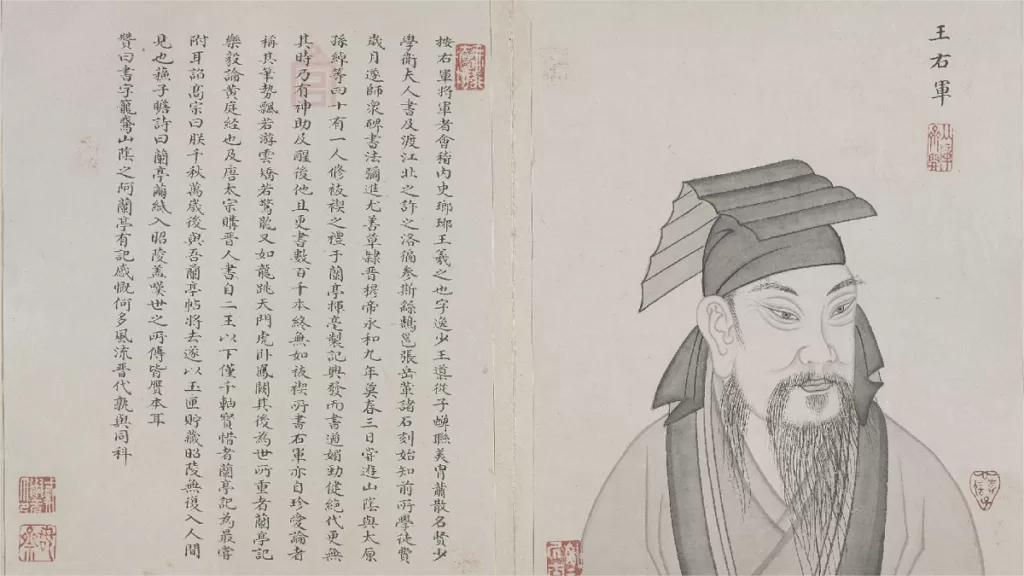Wang Xizhi (王羲之) (303-361 AD) was a celebrated calligrapher, poet, and government official in ancient China during the Eastern Jin dynasty. He is widely regarded as one of the most important figures in the history of Chinese calligraphy and is often referred to as the Sage of Calligraphy.
Wang Xizhi was born in Linyi, Shandong Province, in a family of calligraphers. He received an excellent education from his father and older brother, both of whom were accomplished calligraphers. He began practicing calligraphy at a young age and quickly developed his own distinctive style.
Wang Xizhi’s calligraphy is known for its flowing, graceful lines, delicate brushwork, and subtle variations in tone and texture. He was particularly skilled in the use of the cursive script, which is characterized by its loose, informal style and its rapid, fluid strokes.
In addition to his mastery of calligraphy, Wang Xizhi was also a gifted poet. He wrote numerous poems throughout his life, many of which are still celebrated today for their beauty and insight. His poetry reflects his deep appreciation of nature, his love of family and friends, and his profound understanding of human emotions and relationships.
Wang Xizhi was not only an accomplished artist and writer, but also a respected government official. He held a number of high-ranking positions throughout his career, including the governor of Jingzhou and the supervisor of the imperial academy. He was known for his integrity, his intelligence, and his dedication to serving the people of China.
Despite his many achievements, Wang Xizhi remained humble and dedicated to his craft. He continued to practice calligraphy and write poetry throughout his life, constantly striving to improve his skills and deepen his understanding of the art forms he loved.
Wang Xizhi’s influence on Chinese culture and art cannot be overstated. His calligraphy and poetry have been studied and admired for centuries, and his legacy continues to inspire artists and writers around the world today. He is remembered not only for his remarkable talent, but also for his kindness, his wisdom, and his devotion to his craft and his country.


